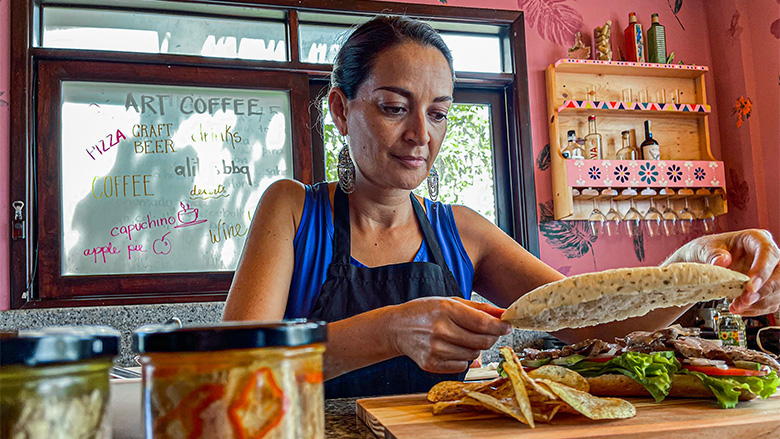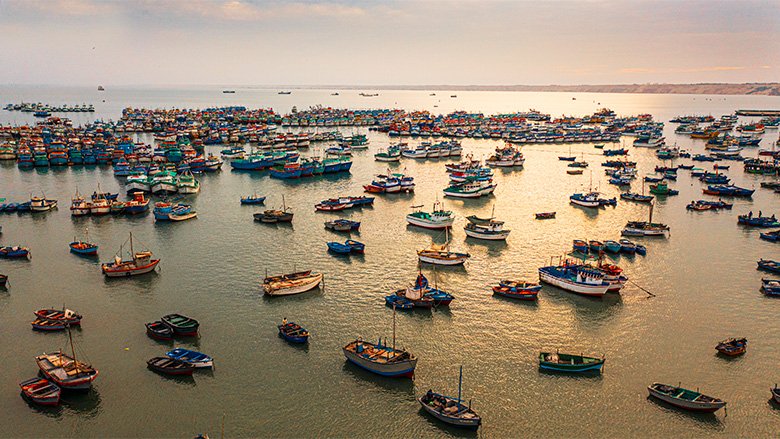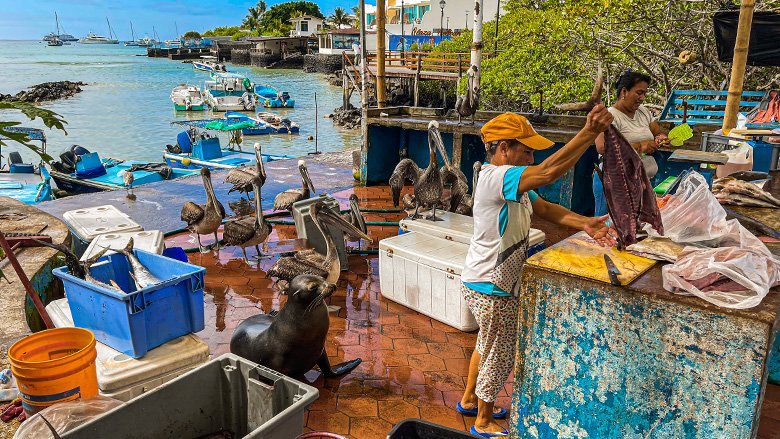The ocean is one of the main reserves of biodiversity in the world, a place where more than 250 thousand species live and on which the health of the planet and ours depends. On the coast of Galapagos in Ecuador, and further south in Piura, Peru, more and more organized fishing communities understand that this enormous wealth is not infinite. For this reason, in recent years, there has been an increase in fishers that are committed to innovative solutions to harness the potential of the ocean responsibly, without compromising resources for future generations. These are artisanal fishermen and entrepreneurs committed to building sustainable business models. A pledge to economic growth that transcends borders and respects the environment.
Martín Bayona, an artisanal fisherman from the Ñuro Ecological Community, is proud to belong to a guild that practices responsible fishing. “We respect minimum catch size, we respect the bans on fisheries; we do not overexploit the sea as trawlers do. We catch the fish one by one with a hook, bait, and line, which is the art that our ancestors have taught us,” he says.
In the Galápagos Archipelago, a group of artisanal fishermen is taking decisive steps towards the sustainability of their businesses. This is the case of Manuel Yépez, who has understood the importance of traceability. Manuel uses state-of-the-art technology to certify the value chain of his fish products, which goes from the extraction of the product to the final consumer.
“In the sea, the camera will give record where, what, how, and when you catch each fish. Then, the App gives you information on the type of species we fish (...) Finally, by putting all this information together, we have a QR code that we incorporate into our packaging. When you scan the code, it displays all the product’s information. Additionally, it launches a video of the exact moment when the product that you are now eating was caught” explains Manuel excitedly.
Martín, Manuel, and many other fishers are part of local associations that ensure the well-being of families and the community. A group of these associations participated in the “Pesca Emprende”, and “Pesca Galapagos” initiatives in Peru and Ecuador respectively, projects that are part of the CFI Challenge Fund initiative, implemented by the World Bank. These projects have contributed to strengthening the capacities and knowledge of stakeholders of the seafood system, and to promoting fisheries that are more productive, innovative, and in harmony with the environment while supporting food security and the economic and social development of their communities.
"Pesca Emprende trained us to project ourselves as a company (...) in administration, accounting, and fishing tools," says Martín. Based on this experience, he decided to create “Ñuro Fish”, a small business that now has five boats, and is working hard to further increase the number of boats and their productivity.
In Ecuador and Peru, these projects promoted participatory processes with the stakeholders involved in the seafood system of both countries. The workshops made it possible to identify cooperation and business prototypes to strengthen value chains, in addition to providing training and technical support for the development of business models.
"It was a unique and promising experience," says Lucía Galarza, chef, and entrepreneur of "Sin Lata" products. "We had the opportunity to interact with the fishing industry, to talk with them and create alliances, which was very important to identify the added value we could give to the product." Luis Gallegos, chef of NERO products, adds: "We have matured. There has been technical support from professionals who helped us with topics like marketing, adding and subtracting, discovering the opportunities and weaknesses of our product."
![]()

In Peru, the “Pesca Emprende” project promoted sustainable management of resources by strengthening government institutions, the private sector, and local communities, aiming to encourage a sustained flow of responsible investments in the development of different coastal fisheries.
An example of this was the undertaking of Enrique Pazos Purisaca, a native of La Islilla in the department of Piura. Building on his family legacy, Enrique has managed to put together a fleet of eleven boats with all the necessary permits to extract and market deep-sea fishing products in the Port of Paita. Today, he understands the importance of incorporating satellite technology in each boat to guarantee the safety of his crew and wants to go further: “I have a vision of locking in the entire value chain until we export. Not only for my personal and my family’s benefit but also for the benefit of the people who now work with us”.
This new coastal fishing is a win-win pledge for the environment, the sea, the direct and indirect beneficiaries of artisanal fishing, society, institution, productivity, and, above all, generations to come.
The CFI-CF project is funded by the Global Environment Facility (GEF) through the World Bank. In Perú, this project was implemented with the technical support of INTELFIN in association with the World-Wide Fund for Nature - Peru (WWF-Peru). And in Ecuador, with the technical support of the consortium led by the Charles Darwin Foundation, and comprised of Conservation International, the Presencing Institute, and Commonland.


